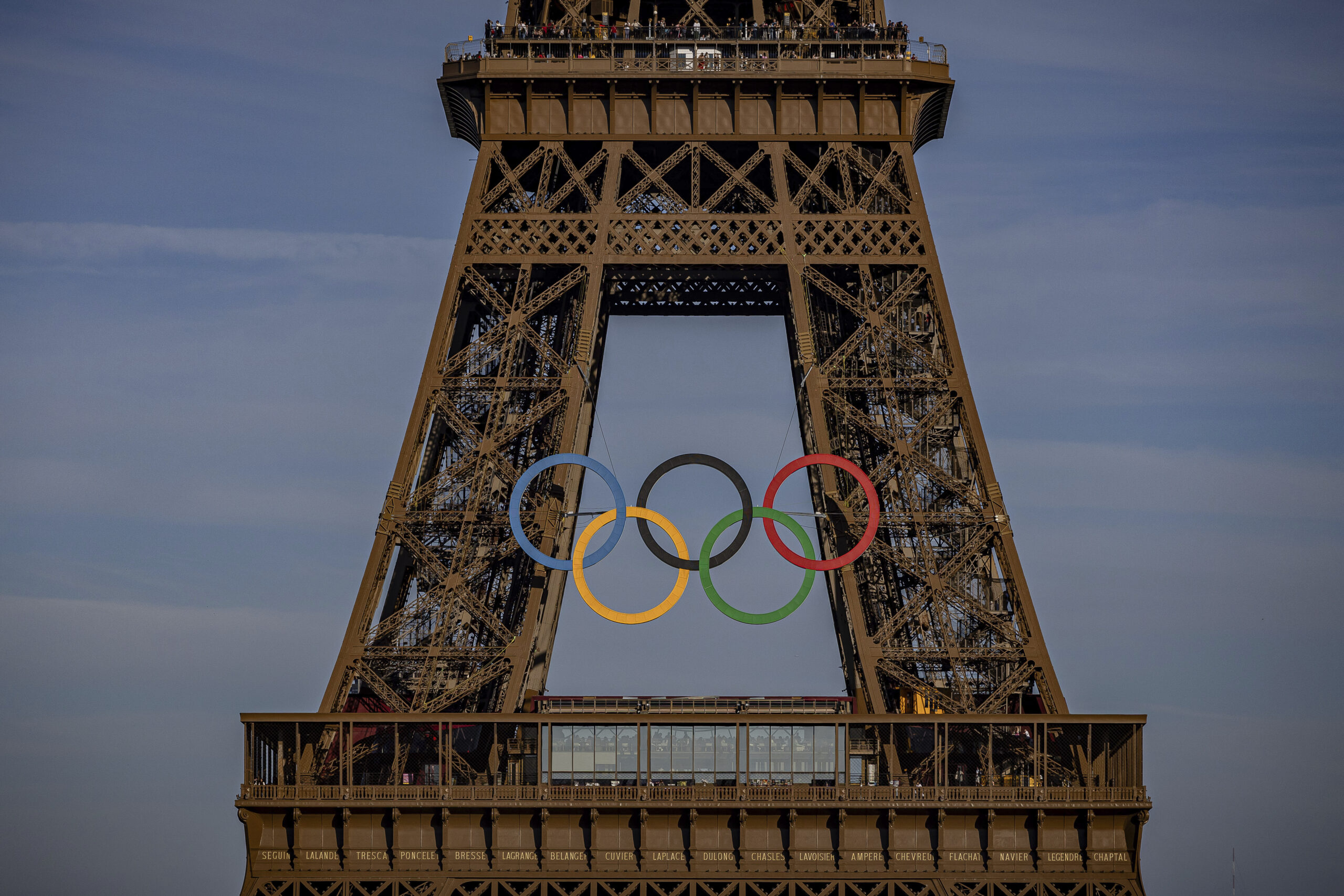
The largest sporting event ever organized in France, the 2024 Olympic and Paralympic Summer Games in Paris will be groundbreaking in more ways than one. With more than 10,000 athletes in 200 countries descending into Europe, one of the preeminent sporting events in the world will be organized in a time of sporting and international intrigue and with as much focus on what will happen away from the fields of competition.
As Team USA continues to take shape and with the torch relay winding its way through France — and having done a review around the 100-day countdown — SportsTravel takes a look at multiple topics, venues and people surrounding the Games with the 50-day countdown having started on Thursday.
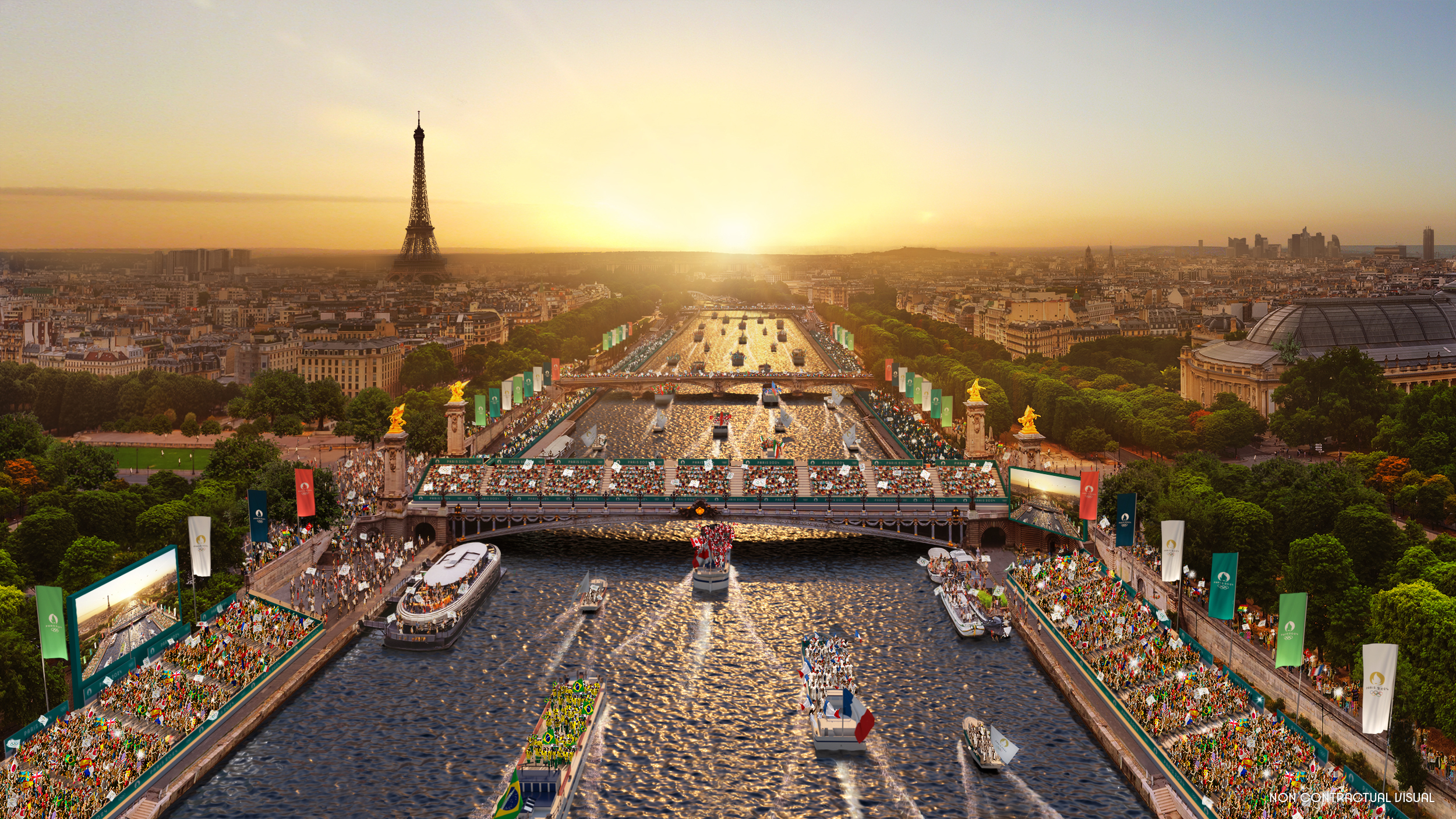
Sponsored Content
About the Host
- The Games will officially run July 26 through August 11 with 32 sports and 45 total disciplines. Action does actually begin with soccer matches on July 24, though the group stage of games will be around France and not housed entirely in Paris.
- There will be 15 venues utilized for the Games with the estimated cost of operations coming in at $10 billion. One of the Paris organizers’ points of emphasis was tying in temporary venues with historic city landmarks. That’s why those on the scene and on television will be able to gawk at beach volleyball at the foot of the Eiffel Tower, or equestrian and modern pentathlon at the Palace of Versailles.
- Versailles will be the final time that modern pentathlon includes equestrian before obstacle replaces it within the assorted disciplines. “I come from equestrian, obviously it’s a sad moment to see your sport change,” said modern pentathlete Jessica Davis. “I also look at it as a graduating class … Being able to compete at (Versailles), I’m really excited for people to be able to come watch it and experience it.”
- Fencing and taekwondo will be at Grand Palais, first built for the Paris Universal Exhibition in 1900. “Fencing has a really long history in France and it’s a very popular sport in the county so to be at the Grand Palais with all my friends and family in the stands cheering me on, I’m just hoping all that energy pushes me in the right direction,” fencer Eli Dershwitz said.
- Place de la Concorde It is where France’s banquet-loving king and queen were guillotined in 1793; this summer, it will be home for the urban park that hosts breakers (more on them later), BMX freestylers, 3-on-3 basketballers and skateboarders. And don’t sleep on Stade Yves-du-Manoir, which was the main venue when Paris hosted the 1924 Games and this summer will host field hockey.
- There’s also plenty of attention based on one venue that will be nearly 10,000 miles away. Surfers will be in Teahupo’o, a coastal village in Tahiti, and will sleep on a cruise ship docked at the French Polynesian island. Staging an event half a world away from the Olympic host city is not unique though; in 1956, horse quarantine rules in Australia meant equestrian events were held in Stockholm, five months before the opening ceremony in Melbourne.
- Another venue that’s gotten plenty of attention is the River Seine, which is where the swim portion of the triathlon and para-triathlon is scheduled for plus open-water swimming. The river’s quality has been an issue for decades with politicians promising to swim in the river but never following through. After millions of dollars have been spent on cleaning up the river, Paris Mayor Anne Hidalgo is scheduled to take a dip on June 23, Olympic and Paralympic Day, along with several others (including potentially French President Emmanuel Macron).
- During the Olympics, water will be tested at 3 a.m. daily to determine whether events can go ahead as planned. If results were not up to the standards, events could be delayed by a few days, organizers said.
- “I think it’s really important that we are able to swim in the Seine,” said U.S. para-triathlete Grace Norman. “It’s an iconic river and I trust that in a few months it’ll be clean enough for us to swim in it. It’s important for us to embody the Paris race, to swim in the river, bike through the city and run on the cobbles — it’ll just complete the entire course. Without it, I’ll be very sad.” “There’s nothing I can do outside of just prepare and being stressed about that,” triathlete Morgan Pearson added. “What’s the point of me worrying about it? There’re more important people figuring all that out. I’ll be ready no matter what.”
- The Seine will also have the eyes of the world on it when the Opening Ceremony floats down the iconic spot July 26. For the first time in Summer Olympic history, barring any security threats, the opening ceremonies will not take place inside a stadium. Macron has acknowledged the parade could be moved if the city is struck by terrorists as it was in 2015. IOC President Thomas Bach said in May he expects the Opening Ceremony to be “unforgettable for the athletes, and everybody will be safe and secure”
- What some may not realize is the Opening Ceremony is often skipped — not just by athletes who are in satellite locations but those who have to compete the next morning. “I think it’s a beautiful idea,” Dershwitz said. “I think it’s going to be done wonderfully. I’m very upset that for the second straight Olympics I’m competing the morning after so I won’t be able to go … I’ll put on the uniform, I’ll take some pictures in the village with some friends and some other Olympians that I want to meet.”
- Paris’ entire Games plan also has a heavy emphasis on sustainability. Organizers say 95% of facilities are existing or will be temporary. Two new structures were deemed unavoidable: The Olympic Village, to house athletes and later become housing and office space, and the aquatics center in Paris’ disadvantaged northern suburbs.
- Paris was where women first competed at the Olympics — in 1900 with 22 of the 997 athletes in competition. This summer, for the first time, women have an equal share with men of an entry quota that is now 10,500 athletes across 329 events. That is an increase from 48% at the Tokyo Olympics, where the IOC encouraged all countries to select a man and a woman each to be flagbearers at the opening ceremony.
Beyond the Games
- A report published by the Centre de droit et d’économie du sport of the University of Limoges, a research institute in France, claims the Games will generate between 6.7 and 11.1 billion Euros in net economic benefits in the Paris region. Spanning the period from 2018 to 2034, the impact is expected to revolve around tourism, construction and the organization of the Games. The period from 2018 to 2034 was chosen to cover the lifecycle of the Games including preparation, staging and legacy.
- This will be the sixth time that France has hosted either the Summer or Winter Olympic Games, the second-most of any country behind the United States. It is Paris’ third time as Summer host (1900 and 1924), tying it with London for the most of any city. Los Angeles will join Paris and London in the three-time Summer host club in 2028.
- Before the Games get underway, both France and the United States will have addition future Games assigned to it when the Alps region is awarded the 2030 Olympic and Paralympic Winter Games and the U.S. gets the 2034 games in Salt Lake City, Utah.
- Paris will be under heavy security at the Games. Every little thing is noticed in the pre-Games leadup, including this week when three people were released from custody pending further investigation after they allegedly placed five coffins at the foot of the Eiffel Tower. According to officials at the Paris prosecutor’s office, the three — citizens of Bulgaria, Germany and Ukraine — placed the coffins, covered with a French flag that included an inscription reading “French soldiers of Ukraine,” near the Eiffel Tower on Saturday.
- France has asked 46 countries to help with providing an additional 2,000 security support staff to secure the Games with the country on heightened alert against potential attacks. France plans to deploy about 45,000 French police and security forces, 20,000 private security personnel and around 15,000 military each day, according to Reuters.
- Special anti-terrorism measures being put in place to safeguard the unprecedented opening ceremony for the Paris Olympics on the River Seine will also apply to all buildings along the route, meaning people who work and live there and their guests will be subjected to background security checks, Paris police said in April.
- French security services in late May arrested a teenager in Saint-Etienne suspected of plotting an attack on a soccer game being played during the Olympic tournament in the city, with the French authorities believing he intended to attack spectators and security forces.
- Russian propagandists have created a documentary, fake news reports and tried to imitate French and American intelligence agencies to issue fake warnings urging people to avoid the Games, according to a report released Sunday by Microsoft.
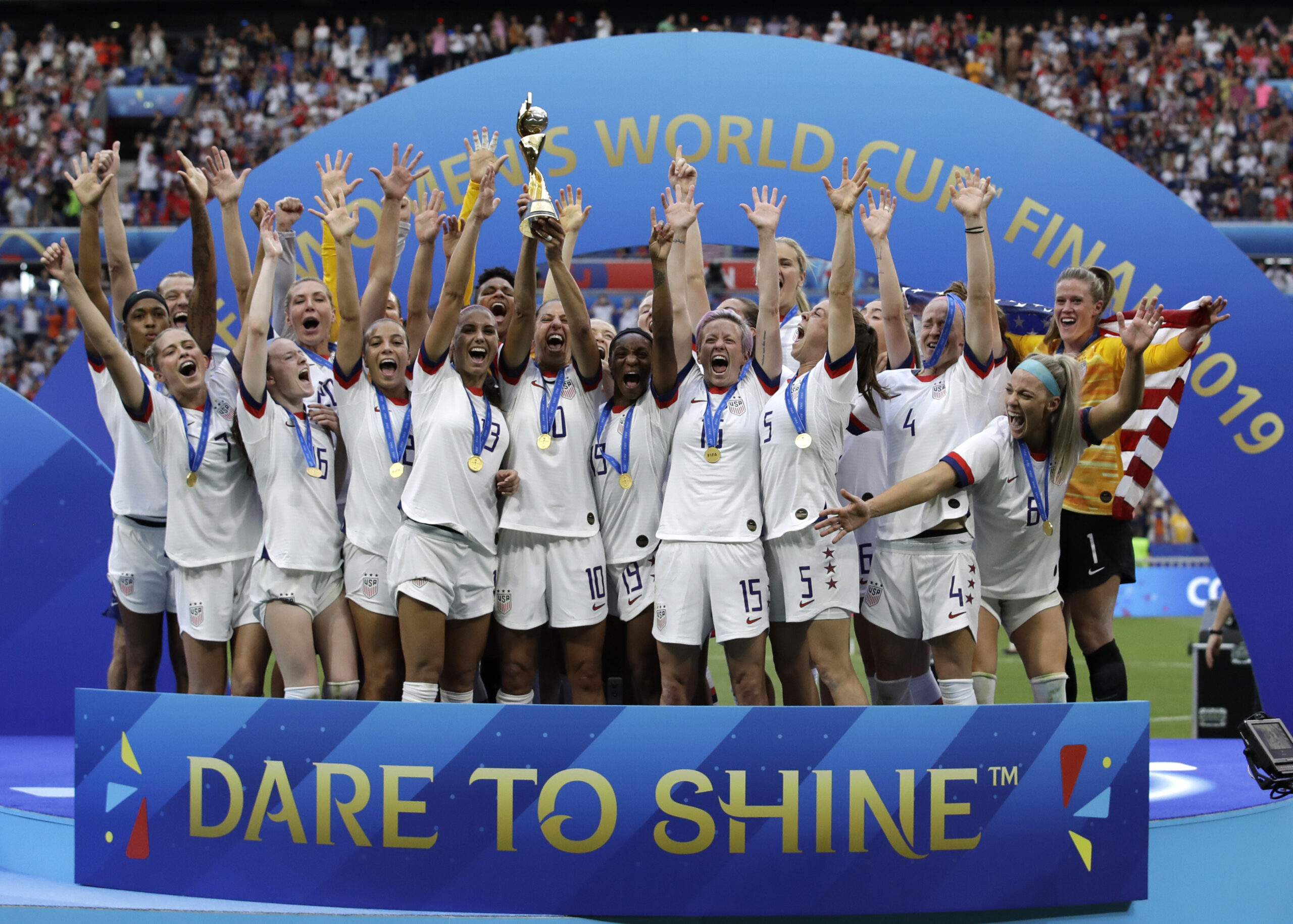
About Team USA
- The last time the U.S. team did not earn the most medals was in the 1992 Summer Games in Barcelona, when the Unified Team of former Soviet Union republics won the most. “We’re going to have a great Paris Games,” said USOPC Board Chair Gene Sykes. “That means medals, gold medals, all the things we expect. The games will be a reemergence of the Olympic spirit in the United States. We’re in a place in Paris that everyone in the world has a very strong sense of. That will get much more people interested in what will be the Olympic and Paralympic movement.”
- Team USA will have its own training center in Eaubonne, a small French town, at the revamped Athletica complex. Athletes and staff will be able to utilize the venue, which includes almost anything you could want for an athlete’s performance. It will also be used by Team USA for the Paralympics for the first time. “One of the primary factors was the location,” said USOPC Chief of Athlete Services Rocky Harris. “It was something that was easy for our team to get to. It’s in a quiet neighborhood, so there’s no distractions there and it’s fully accessible.”
- “When we’re at a World Cup, the event is for soccer,” said U.S. women’s national teamer Crystal Dunn. “When you represent Team USA in an Olympics, you are representing your sport and you’re trying to win a gold medal for Team USA.” The U.S., surprisingly perhaps, has not won gold in women’s soccer since 2012 with only a bronze in 2020 since. But “winning an Olympic medal is special,” Dunn said. “People can say it’s not gold, in my head it’s rose gold. I’m still going to celebrate winning a bronze medal because it is really special and it’s hard to win a medal in the Olympics.”
- Winning medals is what USA Swimming is known for with its reputation as the best swim country in the world. This summer’s Olympic team is set to be decided at the U.S. Olympic Trials in Indianapolis at a temporary pool at Lucas Oil Stadium. The event will have a seating capacity of up to 35,000 and will be formatted in the same design as when the city has hosted the NCAA Men’s Final Four. Three temporary pools — two 50-meter and one 25-meter — will be installed over the field. With a multi-pool configuration, Lucas Oil Stadium will seat 32,000 fans.
- “What you’re going to see if you get to walk around and go behind that curtain is the largest warmup pool ever built for any competition anywhere in the world, 10 50-meter lanes and seven 25-meter lanes,” USA Swimming President and Chief Executive Officer Tim Hinchey said this week. “This seating across from me is dedicated solely for our coaches and our athletes. This will be the first time at any of our Olympic Trials where our coaches and athletes will get a front-row seat to watch their teammates swimming and competing to make the Olympic Team.”
- The Olympic trials for track and field will be in Eugene, Oregon, which has been the center of USA Track & Field for several years now. The financial stakes for qualifying to the Games and having a chance to win a gold medal have been heightened as well: World Athletics will pay $50,000 to gold medalists in Paris. Relay teams will split the $50,000 between their members.
- “Cha-ching,” said long jumper Tara Davis-Woodhall when asked about World Athletics’ plan. “It’s more money in my bank account.”
- “It’s a step forward for the sport,” hurdler Kenny Bednarek added. “Some compensation is needed for (athletes). There’s some cases where you may have somebody at that level that’s not sponsored and that money will help them for the next couple months, next couple of years.”
- The idea of paying athletes for performance is not unusual France will pay its gold medalists around $85,000 each. The U.S Olympic and Paralympic Committee runs “Project Gold,” which gives $37,500 for gold, $22,500 for silver and $15,000 for bronze.
- The Olympic trials for gymnastics are heading to Minneapolis after the national championships were concluded last weekend in Fort Worth, Texas. The legendary Simone Biles won the women’s title on Sunday night — her ninth, this one with an all-around total of 119.750. The Trials in Minneapolis will be where the five-woman U.S. team is named that will head to Paris as heavy favorites to return to the top of the podium after finishing second to Russia in Tokyo three years ago.
- Brody Malone won the men’s national title in Fort Worth and will be the leader in Paris for the men’s team. The 23-year-old wrapped up his third national title, just over a year from when he shredded his knee at a meet in Germany in March 2023. The U.S. men finished seventh in Tokyo.
- There will be dominant athletes at the Olympics but entering Paris, there may be no more dominant team than U.S. women’s basketball. It has a 70-3 record in Olympic history and with seven gold medals, it has not lost in the Games since 1992. A gold medal in 2021 tied the U.S. men’s basketball team’s record (1936–1968) for the most consecutive Olympic team victories in all Olympic sports.
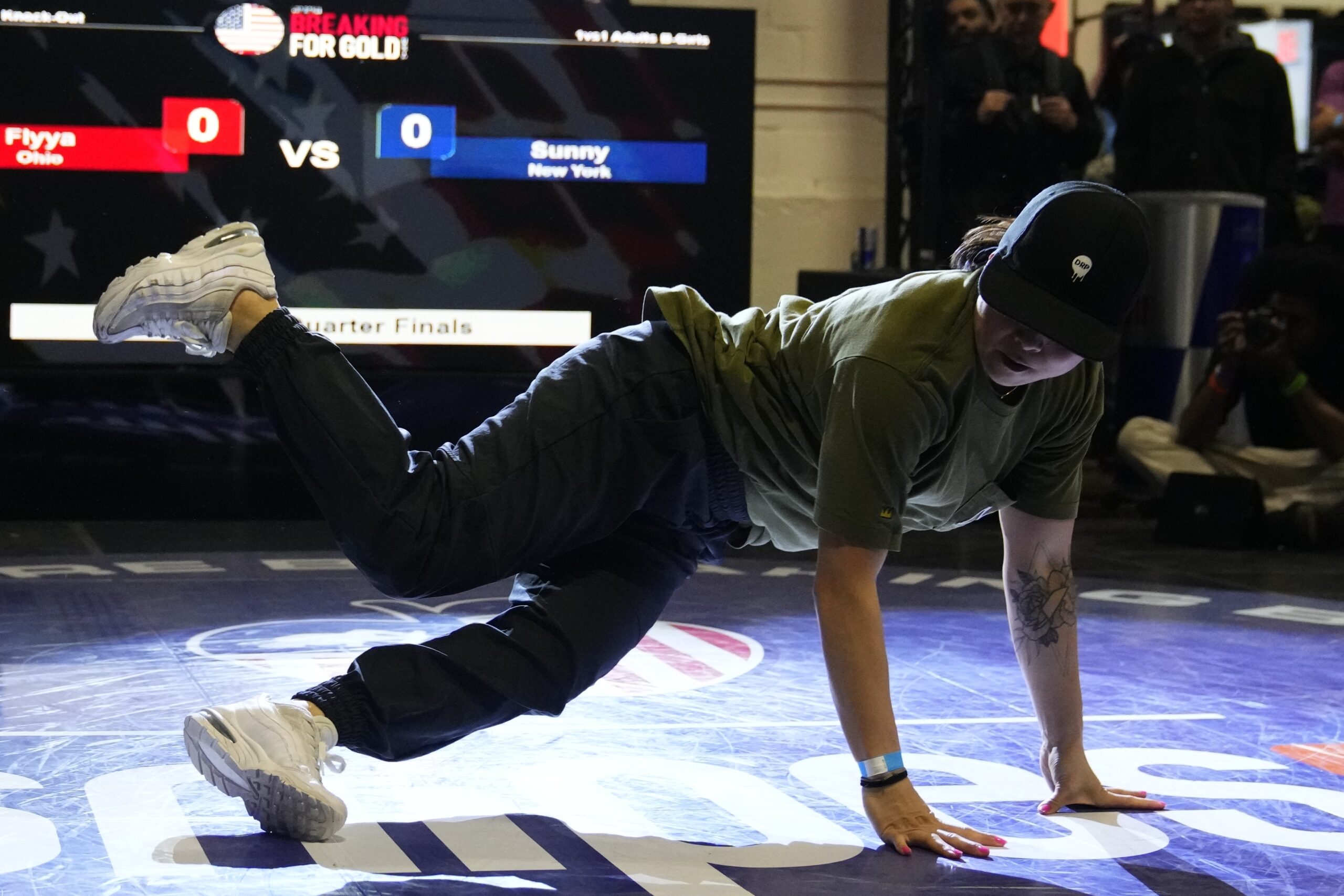
Sports in the Spotlight
- For all of the marquee sports the Olympics have, the sport with perhaps the most buzz is breaking as its 50-year journey from the Bronx will arrive at the Place de la Concorde, where 16 b-boys and 16 b-girls will compete on August 9-10. “I feel like it’s going to bring breaking to a different audience, a broader audience,” said breaker Victor Montalvo. “Not a lot of people know that breaking is in the Olympics. … for me they’re doing it justice and I saw where the event is going to be and the stage is intimate, the crowd is going to be on the dance floor and that’s something we thrive off of.”
- Breaking might yet be one and done, however. It has been dropped for 2028 in Los Angeles and it is unclear yet if Brisbane will push to give breaking a second chance in 2032. “I did hear breaking was the first sport to sell out, so people are definitely interested,” said breaker Sunny Choi. “I’m sure there will be momentum afterward and only time will tell.”
- “The saddest thing that I saw was when I met with some of the younger up and coming talents who had hopes of going to L.A.” said Harris. “That was tough for some of the athletes that they knew that they were off the program. But what it did for the athletes competing in Paris has actually inspired them to use this one moment to be the moment for their sport to help it grow over the next decade.”
- Another sport on this summer’s program facing an uncertain future is boxing, which the IOC has at various points said is confirmed and is not confirmed for LA28. “Women’s boxing just became an Olympic sport in 2020,” said Morelle McCane. “It’s like we just got here, don’t take it away! Hopefully they’ll look at this Olympics and decide to keep it. I’m fighting for it.”
- One sport that is sure to be on the LA28 program is climbing, which debuted in Tokyo and has no worries about its Olympic future. “We’ve spent a lot of time trying to get into the Olympics, I think it was in 2016 when we finally found out that we were in and that was really cool,” Brooke Raboutou said. “I think we’re moving in the right direction and that’s cool because that means people are enjoying our sport.”
- LA28, being a home games, will allow for all U.S. teams to automatically qualify as host. But for some sports, being in Paris this summer is just as important for having qualified rather than rely on an automatic spot. USA Artistic Swimming will be in Paris for the first time in 16 years, having qualified at the World Championships in Doha after barely missing on qualifying through the Pan Am Games last fall in Peru.
- “Going into worlds knowing it was our last chance and we kind of fumbled the ball the previous time (at Pan Ams), it was really important for us to be in our bubble and be centered,” said Daniella Ramirez. “It is really cool that we’re prequalified for LA28 but we really wanted to prove to ourselves that we deserve to be on this stage now with the rest of the world.”
- “I think that not qualifying at Pan Ams made it that much better at Doha,” added Megumi Field. “We trained so hard this year, after Japan winning our first world medal in 16 years, we were keeping that momentum going at practice. At Pan Ams we started to focus more on other teams instead of ourselves. That may be where we lost ourselves a little bit. At Doha, it was a complete bubble, there was literally nothing that could penetrate our bubble. A lot of us said we were glad we didn’t qualify at Pan Ams because qualifying on the world stage is that much better.”
- Paris will be the first time that men can compete in artistic swimming at the Olympics. Bill May, a 45-year-old who lives in California, was part of the squad when the United States qualified. The expectation is he would be the only man competing in Paris, if he is there — but May was not named on the final team over the weekend.
-
“This should have been a landmark moment for the sport,” World Aquatics said in a statement. “We understand that it was always going to be a challenge for men to earn a spot on a team in time for Paris 2024, considering that their eligibility was only confirmed 18 months ago, but we were still hopeful that some would succeed.”
- USA women’s field hockey is back in the Games for the first time since 2016 after being three teams ranked in the top 10 in the world at the 2024 FIH Hockey Olympic Qualifier in Ranchi, India. It was the most tangible sign of progress for the program since the national team moved its training to the U.S. Performance Center in Charlotte, which over the past few years has been used by more than a dozen national governing bodies, including becoming the National Training Center for USA Field Hockey and USA Taekwondo.
- “We have the trainers, they built us a field,” midfielder/forward Abby Tamer said. “We get sport psych, we get nutrition, we get strength conditioning. To have all of that and not have it be something we have to think about lets us focus on our priorities and what we need to be focused on. The U.S. Performance Center has been a blessing for us.”
- “Having the U.S. Performance Center support is great,” added goalie Kelsey Bing. “It goes to show that any investment in women’s sports can propel us to succeeding and doing well. Having that type of backing and knowing that people trust us to succeed and giving us the resources that we need, it warms my heart.”
- Field hockey, like many Olympic sports, is undergoing dramatic changes as part of the overall collegiate conference realignment driven by football. Bing played at Stanford, which is now in the Atlantic Coast Conference and has a 2024 schedule that includes games at Louisville, Virginia, Syracuse, Boston College, Northwestern and Indiana.
- While that sounds wild for travel, Bing pointed out one thing: “When I was at Stanford, we were in the America East Conference. So being in the Atlantic Coast Conference is not that different except now we’re flying further south.” In Bing’s senior season, Stanford played at Brown, Harvard, New Hampshire, against Vermont in New Hampshire and then traveled to the conference tournament in West Long Branch, New Jersey.
- As for medal hopes? “We actually look at medal expectancy for every sport,” Harris said, later adding “sport climbing is really thriving right now. They have some new disciplines, but also multiple athletes that are top three in the world. We should see more medals come out of that sport. A sport like rowing and sailing that were shut out of the Tokyo Games on the medal count, we expect them to have a medal or two each. Fencing got two medals at the last Games (and) we think that they’ll perform even better going into the next Games.”
And Finally …
- Security worries and all, there is plenty of stake not only for the Olympic movement but the U.S. Olympic movement with two future Games on tap and plenty of debate over expected TV ratings. “I’m most excited that we get to in some ways re-introduce the country to the Olympic and Paralympic Games,” USOPC Chief Executive Officer Sarah Hirshland said. “Paris’ motto is Games Wide Open. We’re sensing the excitement and we’re excited for the whole country to come along.”


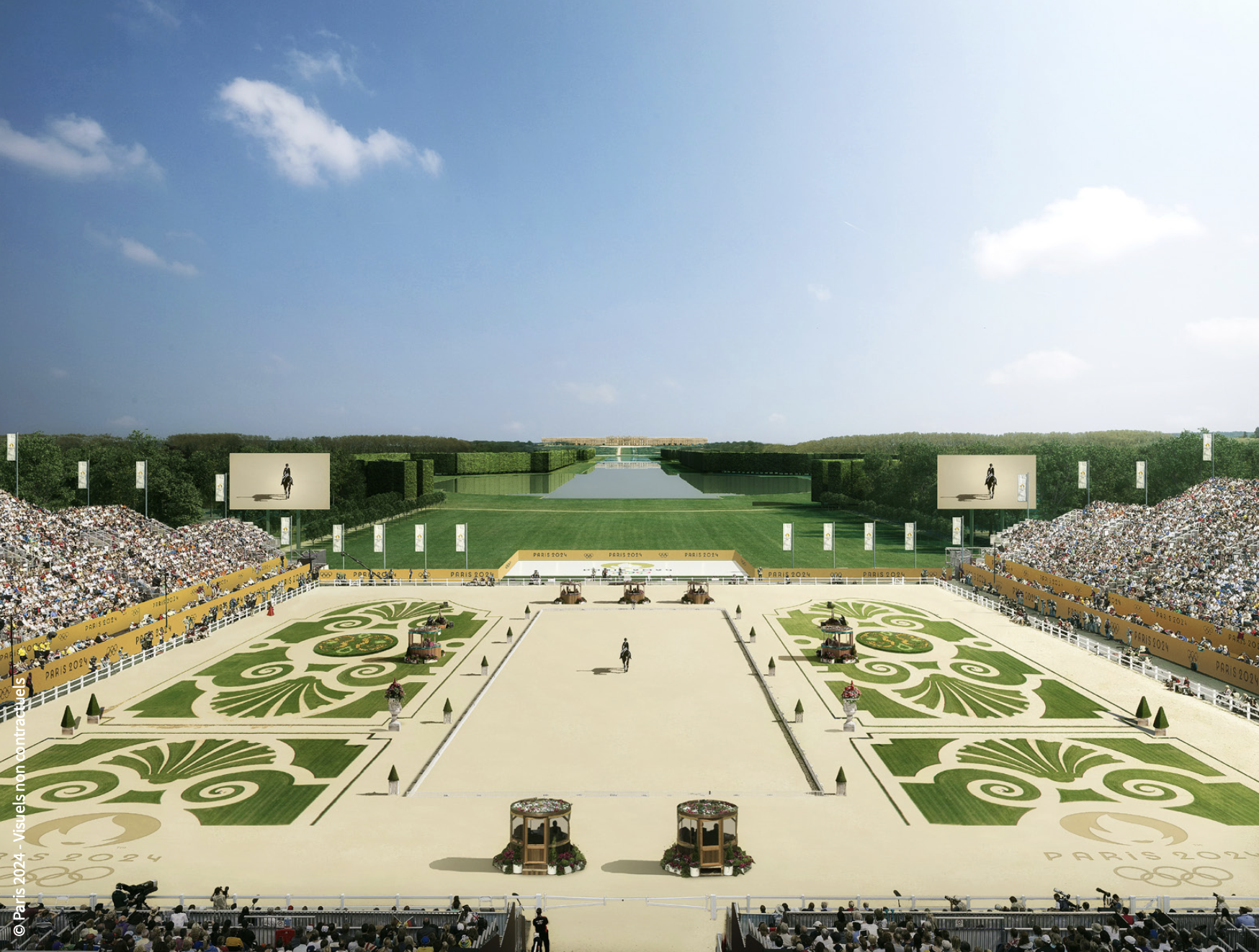










 Copyright © 2025 by Northstar Travel Media LLC. All Rights Reserved. 301 Route 17 N, Suite 1150, Rutherford, NJ 07070 USA | Telephone: (201) 902-2000
Copyright © 2025 by Northstar Travel Media LLC. All Rights Reserved. 301 Route 17 N, Suite 1150, Rutherford, NJ 07070 USA | Telephone: (201) 902-2000